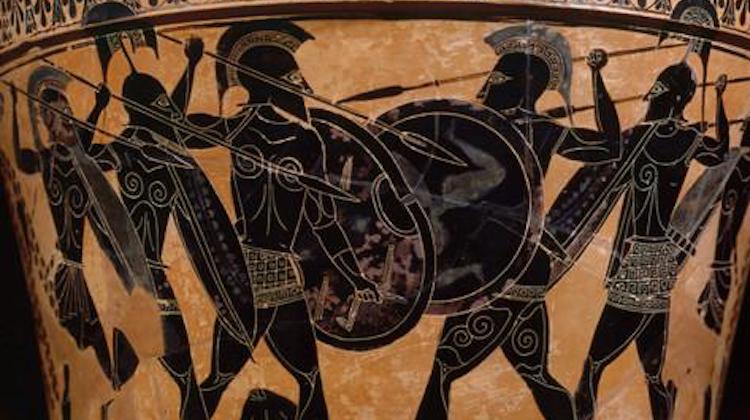Note: If you wish to receive, via e-mail, (1) my weekly newsletter or (2) daily copies of these posts, notify me at [email protected] and indicate which you would like. I promise not to share your e-mail address with anyone. To unsubscribe, send me a follow-up email.
Wednesday
I found myself thinking of the bloody battle of Bakhmut as my faculty study group continued its examination of The Iliad this week. Homer captures the horror of war like nobody else, which brought home to me the horror of what is happening in Ukraine.
Gen. Mark Milley, Chairman of America’s Joint Chiefs of Staff, has described Bakhmut as “a slaughter-fest for the Russians,” and in that way it is proving a boon to the Ukrainians, who are “attriting” the invading forces in ways that will pay off later. As they have throughout the war, Ukraine has been making full use of NATO intelligence to pinpoint and destroy Russian attackers, which brings me to The Iliad.
In the sections my group is currently discussing, the Greeks—like the Ukrainians—are hunkered down behind barricades as the Trojans attack. But the Greeks, like the Ukrainians, have superior intelligence, although in their case the intelligence comes through satellite technology and reckless Russian cell phone use but Athena.
The situation is as follows. Facing a dire situation, wise counselor Nestor figures that the Greeks must know more about Trojan intentions. He expresses the need as follows:
O my friends, is there no man who, trusting in the daring
of his own heart, would go among the high-hearted Trojans?
So he might catch some enemy, who straggled behind them,
or he might overhear some thing that the Trojans are saying,
what they deliberate among themselves…
Diomedes (the muscle) and Odysseus (the brains) volunteer and use night as cover to scout behind Trojan lines. In an unnerving scene, we see the two of them picking their way “through the carnage and through the corpses.” It’s a scenario that those fighting over Bakhmut know only too well.
Now, it so happens that the Trojans are doing the same but, like the Russians, their intelligence-gathering is inferior. It takes the form of one Dolan who, failing to take the same precautions and carrying weapons that are useless for close hand-to-hand combat (a bow and a throwing spear), is detected by the Greeks and easily captured. Odysseus proves a skilled interrogator and extracts valuable information about enemy locations, which in turn leads to the Greeks’ own slaughter-fest:
Grim sounds rose
from there as they [the Trojan allies] were stricken with the sword, and the ground reddened with blood.
As a lion advancing on the helpless herds unshepherded
of sheep or goats pounces upon them with wicked intention
so the son of Tydeus attacked the Thracian people
until he had killed twelve.
Also like the resourceful Ukrainians, the Greek warriors know when to fall back after an incursion. This knowledge comes from Athena, who advises Diomedes,
Think now, son of the great-hearted Tydeus, of getting back
to the hollow ships; else you might go back with men pursuing
if there should be some other god to waken the Trojans.
Of course, the Greeks will ultimately use wily tactics—the Trojan horse—to win the war. We will see if Ukrainian tactics can bring about the same end.
